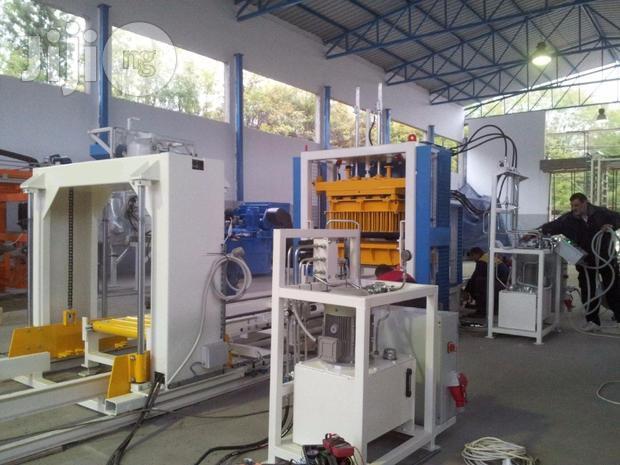Block moulders in the country on Monday commenced strike over the latest increase in the prices of cement, granite and other construction materials.
The moulders also hinted about plans to raise the prices of their products unless the prices of cement and other moulding materials were immediately reversed.
The President, National Association of Block moulders of Nigeria, Alhaji Rasco Adebowale, who confirmed the development to our correspondent, said the strike would last for five days.
This, he added, was to enable members of the association to adjust the prices of their products in line with the current situation.
He said, “We won’t really call it a strike but a break for one week after which we will decide on a new price for blocks following the increase in price of cement. As the price of cement has gone up, we are at a loss on how to sell blocks; so, we have called all our leaders in the six geo-political zones of the country to decide on the way forward.
“Starting from today, we will not work, sell or supply blocks to anywhere or anybody. This will enable us to work out how to sell our products throughout the federation. Cement is our major ingredient and we do not want to compromise on quality.”
The Cement Manufacturers Association of Nigeria last week raised prices of their various brands by N600 per bag as factory price and an additional N100 for the cost of haulage.
The increase in factory price was immediately followed by a hike by distributors and retailers to between N2,300 and N2,500, depending on the brand and location of the seller.
Prices of sand, granite, reinforcement rods and many other products for building construction have also been increased.
A popular block maker in Lagos, who spoke on condition of anonymity, said quarry products had risen by as much as 50 per cent and block moulders were at a loss on how to fix prices.
“The 50 per cent increase in the prices of cement and other quarry products such as granite and dust necessitated this. It is not an indefinite strike but we hope that the Federal Government as well as cement manufacturers will look into the issue,” the source added.
A 2nd Vice-President of the Nigerian Institute of Building, Mr. Kunle Awobodu, said the increase in price of cement had created uncertainties in the construction sector, adding that it had dampened the hope for affordable housing construction in the country.
Awobodu, who is also the President of Building Collapse Prevention Guild, said, with the rise in cement prices, “there will be the tendency to reduce the cement to sand ratio and the strength of the block will be weakened; this can lead to more cases of building collapse in the long run.
“So, there is a need for the association to agree on new price for blocks to avoid a proliferation of substandard products.”
A former Chairman, Nigerian Society of Engineers, Lagos State Chapter, Mr. Olatunde Jaiyesinmi, said the onus was on the government to put certain measures in place as the construction industry was already suffering low level of activities.
He said, “The announcement of any product price increase now should not be strange to anyone. There is hardly any product in the country that has no import component and our foreign reserve is shrinking by the day and until we decide on what we want to do with our appetite for foreign things, we still have a long way to go.
“The government is not giving good examples as regards this. Except we do something about the implementation of policies in the economy, we may not make any progress. The construction industry is the first casualty in any recession, it is the largest single sector that employs people, and this should be put into consideration.”

 Naira4 weeks ago
Naira4 weeks ago
 News4 weeks ago
News4 weeks ago
 Naira4 weeks ago
Naira4 weeks ago
 Naira3 weeks ago
Naira3 weeks ago
 Jobs4 weeks ago
Jobs4 weeks ago
 Travel3 weeks ago
Travel3 weeks ago
 Naira3 weeks ago
Naira3 weeks ago
 Investment4 weeks ago
Investment4 weeks ago






























